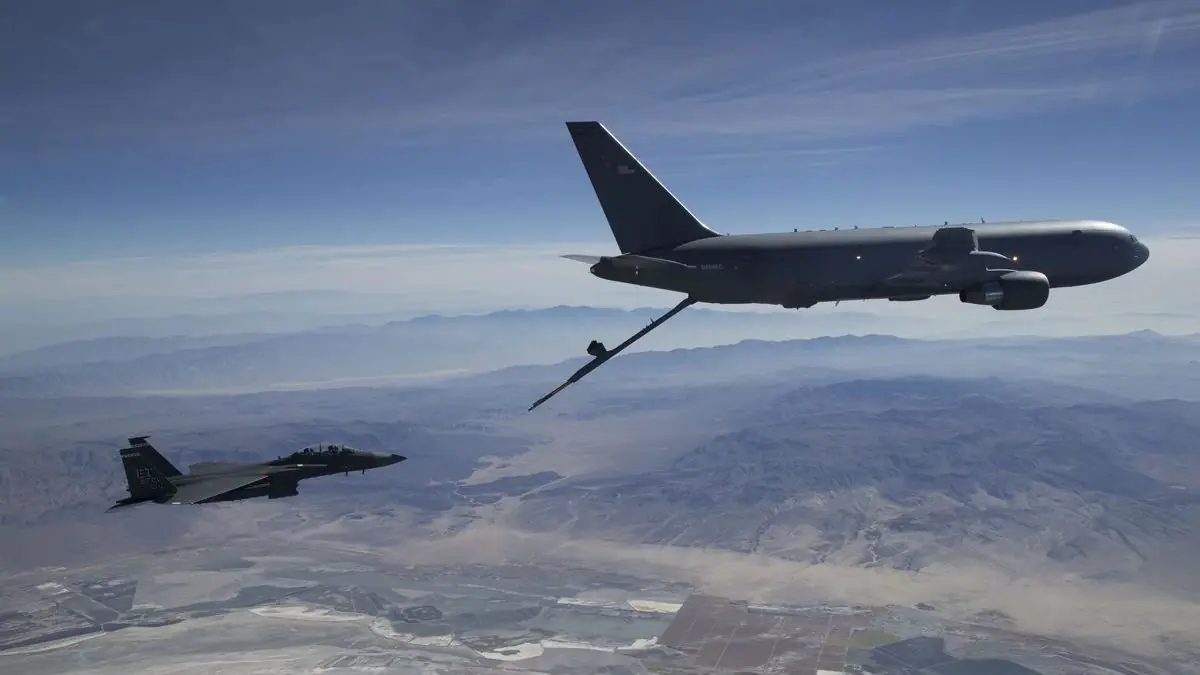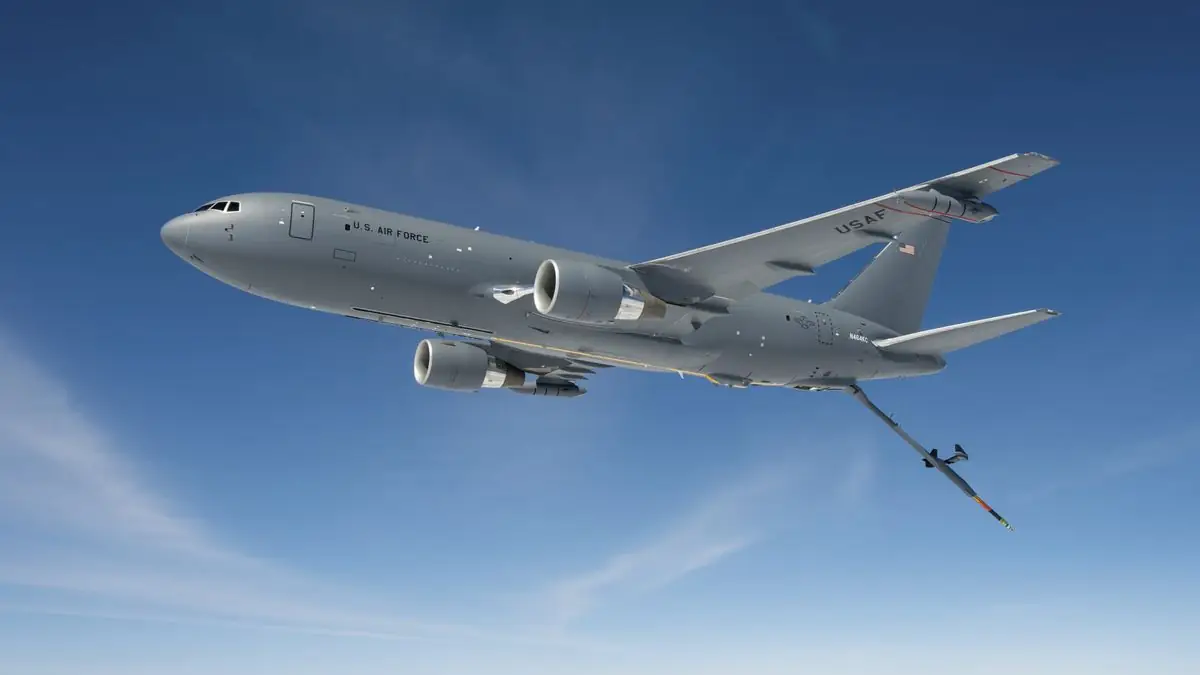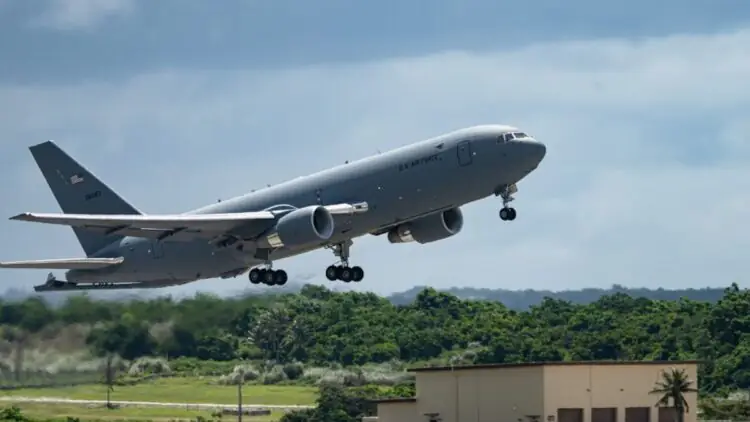The U.S. Air Force has decided to procure additional KC-46 Pegasus tankers from Boeing to help modernize its aging fleet of KC-135 Stratotankers. This move is aimed at avoiding a capability gap in the aerial refueling program once the current contract is fulfilled. At the same time, the Air Force has chosen not to hold an open competition for a new generation of refueling aircraft, as was previously planned.
“The Air Force has approved an acquisition strategy that includes increasing KC-46A production by up to 75 aircraft,” a service spokesperson confirmed. “The KC-46A Production Extension program will ensure continuous recapitalization of the tanker fleet following the final delivery under the existing contract.”

According to media reports, the intent to expand procurement of KC-46 aircraft became apparent several weeks ago. In its fiscal year 2026 budget request, the U.S. Air Force explicitly stated that the Tanker Production Extension program would be based on the KC-46A specification, effectively giving it an advantage over any potential competitors. The Air Force also outlined long-term plans for upgrading the Pegasus fleet. Budget documents indicate that the acquisition strategy for the new program is expected to be finalized within the current fiscal year.
The initial order for 179 KC-46 aircraft is nearly complete: with 15 aircraft planned for purchase in FY2026, only 10 will remain to fulfill the existing contract. However, a spokesperson confirmed that the program has been expanded to a total of 188 aircraft – the maximum allowed under the current agreement.
Over the years, the U.S. military has used various names for programs intended to follow the KC-46 initiative, including KC-Y, Bridge Tanker, and KC-135 Recapitalization. Continuing KC-46 production was always considered one of the options; however, other manufacturers such as Airbus and Embraer also proposed alternatives. At different stages, Lockheed Martin partnered with Airbus, and L3Harris teamed up with Embraer, but both companies eventually withdrew from the competition.

Despite frequent issues with the KC-46 aircraft and its manufacturer Boeing, the U.S. Air Force has decided to focus on this model. In recent years, the Pegasus tanker has faced several technical problems, including visualization system issues for refueling operators, fuel leaks, structural cracks, and troubles with the auxiliary power unit.
Despite these challenges, the Air Force continues to show confidence in the program. In September 2022, the KC-46 was approved for global deployments, and in October 2024, it completed its first combat mission in the Middle East. Last month, it refueled aircraft during airstrikes on Iranian nuclear facilities as part of Operation Midnight Hammer.

The demand for modern refueling aircraft remains high. Recently, the U.S. Air Force retired its last KC-10 Extenders, and the KC-135 tankers – developed during the Eisenhower era – are reaching the end of their service life. Meanwhile, development of the next-generation refueling program, known as NGAS (Next-Generation Air Refueling System), has slowed down. The 2026 budget allocates funding only for market research, modeling, and simulation at this stage.
“The analysis of the next-generation air refueling system is ongoing as the Air Force seeks to address the overall viability of both the old and future tanker fleets,” said a U.S. Air Force representative.
Read also:
- Everything About Tempest – The UK’s Sixth-Generation Fighter Jet
- Modernized “Ruslan” Aircraft Successfully Relocated from Ukraine to Germany
Source: airandspaceforces









